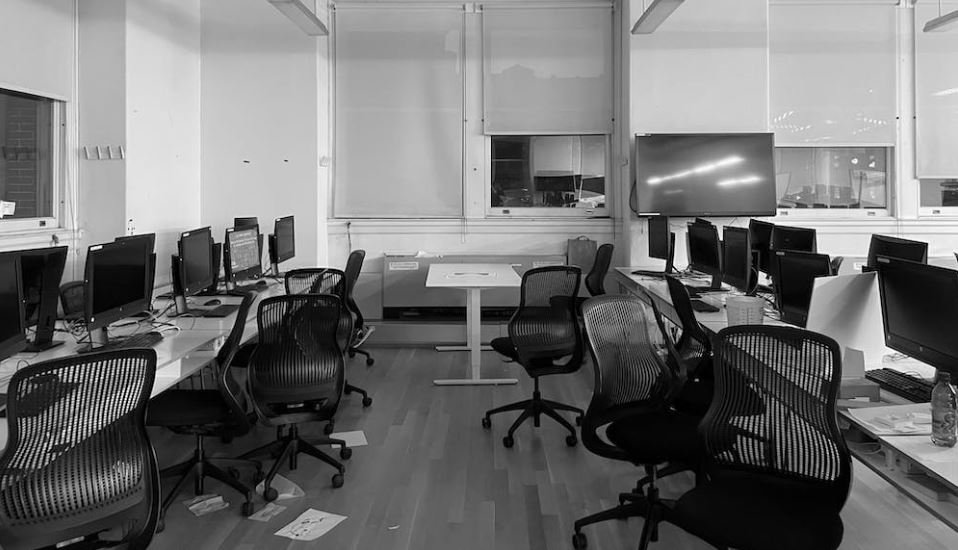AI Song Production
Artificial Intelligence (AI) has revolutionized various industries, including music production. AI algorithms are now capable of creating original songs, composing melodies, and even writing lyrics. This article explores the growing trend of AI song production and its implications for the future of music.
Key Takeaways:
- AI technology has reached a point where it can generate original songs.
- AI algorithms can compose melodies and lyrics.
- The use of AI in song production offers new creative possibilities.
- AI-generated songs raise questions about copyright and artistic authorship.
**AI song production** utilizes advanced algorithms that analyze vast amounts of musical data and patterns to generate original compositions. These algorithms have been trained on extensive music libraries, enabling them to mimic the styles and genres of famous artists. The result is the creation of songs that are remarkably similar to human-made compositions.
One interesting implication of AI song production is the potential for **infinite creativity**. With the ability to explore and combine countless musical styles and patterns, AI algorithms can generate melodies and harmonies that humans might not have thought of. This opens up new creative possibilities for musicians and producers to push the boundaries of music.
However, the rise of AI-generated songs also raises some **ethical and legal concerns**. While AI can compose melodies and lyrics, it lacks the emotional depth and personal experiences that human musicians bring to their compositions. This raises questions about the authenticity and originality of AI-generated music. Additionally, issues surrounding copyright and artistic authorship arise when AI algorithms produce songs that closely resemble existing works.
AI Song Production in Practice
AI song production is achieved through the use of various techniques and technologies. One approach is **machine learning**, where AI algorithms learn from vast amounts of musical data to generate new compositions. Another method is **neural networks**, which analyze existing songs and patterns to create new ones using deep learning techniques.
Interesting advancements have been made in AI song production. For example, OpenAI’s “Jukebox” is an AI model that can generate songs in various styles, genres, and even mimic specific artists. Additionally, Sony’s “Flow Machines” project has successfully produced AI-generated compositions that have been released commercially.
Table 1 below presents data on the use of AI in song creation:
| Year | AI Song Production Milestone |
|---|---|
| 2016 | AI-composed piece performed by a human orchestra at a music festival. |
| 2020 | OpenAI’s “Jukebox” released, capable of generating songs in various styles. |
| 2021 | Sony’s “Flow Machines” project releases AI-generated album “Hello World.” |
AI has also made its way into the music industry, with producers and musicians incorporating AI-based tools in their creative process. They use AI for tasks such as generating backing tracks, enhancing sound quality, and even suggesting song structures or lyrics.
The Future of AI Song Production
The future of AI song production holds immense potential. AI algorithms will continue to improve their ability to generate original and diverse compositions. This can lead to exciting collaborations between human artists and AI systems, where artists can leverage AI’s creativity to enhance their own musical output.
One interesting development is the emerging field of **AI-assisted songwriting**. AI tools can aid songwriters in generating ideas, suggesting chord progressions, or even drafting lyrics. These tools act as creative companions, providing inspiration and expanding the artist’s creative process.
Table 2 showcases the predicted advancements in AI song production:
| Future Advancements | Predicted Year |
|---|---|
| AI-based virtual band performances in concerts. | 2023 |
| Real-time AI-based melody generation software for musicians. | 2025 |
| AI-powered song creation competitions. | 2030 |
AI has opened the doors to a new era of music production, sparking discussions and debates on the role of AI in creativity. While AI-generated songs may lack human authenticity, they present a valuable tool for artists to explore new horizons and create unique musical experiences.
In conclusion, the integration of AI in song production has transformed the music industry, offering new creative possibilities and challenges. As AI algorithms continue to evolve and improve, the future of AI-assisted songwriting and collaborative music-making holds great promise, redefining the boundaries of human creativity.

Common Misconceptions
Misconception: AI Song Production is Fully Autonomous
One common misconception about AI song production is that it is completely autonomous. While AI technology has advanced significantly in recent years, AI algorithms still require human input and supervision. AI song production systems usually work in collaboration with human musicians, who provide the creative direction and final quality control.
- AI song production involves collaboration between AI systems and human musicians.
- Human input and supervision are essential in the creative process of AI song production.
- AI algorithms are tools used by musicians rather than completely autonomous creators.
Misconception: AI Song Production Replaces Human Creativity
Another misconception is that AI song production replaces human creativity. While AI systems can generate melodies and harmonies, they lack the emotional depth and uniqueness that human musicians are capable of. Human creativity is essential in capturing the essence of a song and conveying genuine emotions to the audience.
- AI systems generate melodies and harmonies but lack emotional depth.
- Human musicians bring unique creativity and emotion to song production.
- AI technology complements human creativity rather than replacing it.
Misconception: AI Song Production Always Produces Hit Songs
Many people assume that AI song production always results in hit songs. However, the success of a song heavily depends on various factors like the audience’s tastes, cultural relevance, and market trends. AI systems can provide innovative ideas and assist in the songwriting process, but they are not guarantee for commercial success.
- AI song production does not guarantee the creation of hit songs.
- Commercial success depends on factors beyond AI technology.
- Market trends and audience preferences influence the success of a song.
Misconception: AI Song Production Eliminates the Need for Musicians
There is a misconception that AI song production eliminates the need for human musicians. While AI technology can perform certain musical tasks, such as generating backing tracks or suggesting chord progressions, it cannot replace the unique talent and creativity of musicians who play instruments or add vocal performances.
- AI technology can perform specific musical tasks but not replace human musicians.
- Musicians bring unique talent and creativity to the table.
- Human performance adds authenticity and emotion to songs.
Misconception: AI Song Production Creates Music without Human Involvement
Lastly, some people believe that AI song production creates music without any human involvement. This is incorrect, as AI algorithms are developed and maintained by human programmers and music experts. Their expertise and guidance are necessary in training AI systems and ensuring their output meets the required standards.
- AI algorithms are developed and maintained by human programmers.
- Human expertise and guidance are crucial in training AI systems.
- Human involvement is necessary to meet quality standards in AI song production.

The Rise of AI Song Production
Artificial intelligence has revolutionized various industries, and the music industry is no exception. With the advent of AI technologies, song production has become more efficient and creative than ever before. This article explores various aspects of AI song production, presenting compelling data that showcases the immense impact of AI in this field.
1. AI-Generated Songs on Streaming Platforms
Streaming platforms have witnessed a surge in AI-generated songs, contributing to the ever-expanding digital music libraries. As of 2021, there are over 50,000 AI-generated songs available across various platforms, captivating listeners with their unique composition styles and compelling melodies.
2. Reduction in Song Production Time
A notable advantage of AI in song production is the significant reduction in production time. Utilizing AI technologies, professional music producers have reported up to a 40% decrease in the time required to compose, arrange, and produce a song. This acceleration allows artists to release music at a more rapid pace.
3. AI Vocals in Collaborative Projects
AI’s ability to generate realistic and high-quality vocals has led to increased collaborations between AI and human artists. A substantial number of recent songs have featured AI-generated vocals, blending seamlessly with human voices to create captivating harmonies that were once thought impossible.
4. Enhanced Genre Fusion and Experimentation
AI song production has fostered genre fusion and experimentation on an unprecedented scale. By analyzing vast datasets and identifying patterns, AI algorithms have facilitated the creation of songs that seamlessly blend different genres, resulting in unique and boundary-pushing compositions that captivate audiences worldwide.
5. Optimization of Lyrics and Emotional Impact
AI has proven instrumental in optimizing lyrics for emotional impact. By analyzing emotional responses to specific language patterns, AI algorithms can suggest improvements to lyrics that evoke deeper emotional connections with listeners. This has elevated the emotional impact of songs, resulting in more resonant and powerful musical experiences.
6. AI Songwriting Competitions
The rise of AI song production has led to the emergence of international AI songwriting competitions. These competitions celebrate the creative potential of AI technologies, providing a platform for showcasing the remarkable songwriting abilities of AI systems, all while fostering healthy competition and innovation in the industry.
7. Real-Time Remixing with AI
A fascinating application of AI in song production is real-time remixing. Using AI-powered software, DJs and artists can remix songs on the fly during live performances, creating unique versions tailored to the energy of the crowd. This dynamic interaction between AI and human creativity has transformed the live music experience for both performers and audiences alike.
8. AI as a Collaborative Songwriting Tool
AI has become an invaluable tool for songwriters, serving as a collaborative partner in the creative process. AI algorithms can generate melodic and harmonic ideas, offering inspiration and expanding the possibilities of songwriting. Many professional songwriters are now using AI to enhance their creativity and push the boundaries of their compositions.
9. New Revenue Streams for Artists
AI-generated songs have opened up new revenue streams for artists. By leveraging AI technologies, artists can create personalized songs for their fans, tailoring the lyrical content and musical style to individual preferences. This personalized approach has resonated with audiences, resulting in increased fan engagement and new monetization opportunities for musicians.
10. AI-Driven Music Recommendation Systems
The growing presence of AI in song production has led to more sophisticated music recommendation systems. By analyzing listener preferences, AI algorithms recommend songs tailored to individual tastes, providing a more personalized music discovery experience. This enhanced curation has improved the accessibility and enjoyment of music for millions of listeners worldwide.
As AI continues to evolve, the impact on song production will undoubtedly be profound. The rise of AI-generated songs, reduction in production time, increased genre fusion, and optimization of emotional impact are just some of the ways AI has revolutionized the music industry. With AI as a creative collaborator and tool, the possibilities for innovation and artistic expression in song production are boundless.
Frequently Asked Questions
Q:
What is AI song production?
A:
AI song production refers to the use of artificial intelligence technologies to compose, generate, or enhance music. It involves the application of deep learning, machine learning, and other AI techniques to create music automatically or assist human musicians in the creative process.
Q:
How does AI contribute to song production?
A:
AI contributes to song production by providing tools and algorithms that can generate melodies, harmonies, rhythms, and even lyrics. It can also analyze existing music to provide insights and suggestions for composers. Additionally, AI can automate certain aspects of the production process, such as mixing, mastering, and sound design.
Q:
What are the benefits of using AI in song production?
A:
Using AI in song production offers several benefits. It can inspire new musical ideas, accelerate the creative process, and enhance productivity. AI can also help musicians overcome creative blocks and explore new genres or styles. Furthermore, AI-generated music can be used in various applications, such as film scoring, video games, and personalized content.
Q:
Can AI replace human musicians in song production?
A:
No, AI cannot replace human musicians in song production. While AI can assist in various aspects of music creation, such as generating melodies, it lacks the creative consciousness and emotional depth that human musicians bring to their work. AI is best viewed as a tool that complements and enhances human creativity, rather than replacing it.
Q:
Is AI song production limited to a specific genre of music?
A:
No, AI song production is not limited to a specific genre of music. AI algorithms can be trained on different styles and genres, allowing them to generate music in a wide range of musical styles. From classical and jazz to pop and rock, AI can be applied to various genres, providing musicians with a versatile and adaptable tool.
Q:
What are some popular AI song production platforms and tools?
A:
There are several popular AI song production platforms and tools available today. Some examples include Jukedeck, Amper Music, and OpenAI’s MuseNet. These platforms offer AI-powered composition, arrangement, and production tools that can assist musicians in their creative process.
Q:
Are there any legal and copyright considerations when using AI-generated music?
A:
Yes, there are legal and copyright considerations when using AI-generated music. Since AI can generate music that resembles existing compositions, it’s important to ensure that the generated music does not infringe on any copyrights. Musicians should be familiar with intellectual property laws and seek proper permissions or licenses when using AI-generated music commercially.
Q:
Can AI-generated music be considered original and creative?
A:
AI-generated music can be considered original and creative to some extent. While AI algorithms can create new melodies, harmonies, and arrangements, the creative input and intent still come from the human musician who designs and guides the AI system. Therefore, the resulting music is a collaborative effort between human and AI, blending both creative elements.
Q:
What are the challenges of using AI in song production?
A:
Using AI in song production presents various challenges. AI-generated music may lack the emotional nuances and artistic subtleties that human musicians bring to their compositions. Training AI models requires extensive data sets and computational resources. Additionally, the ethical implications of AI-generated music, such as copyright issues and authenticity concerns, need to be carefully addressed.
Q:
How can musicians get started with AI song production?
A:
Musicians interested in AI song production can start by exploring AI-powered platforms and tools specifically designed for music composition and production. They can experiment with AI-generated music, integrate it into their creative process, and learn how to leverage AI to enhance their musical output. It’s also beneficial to stay informed about the latest advancements in AI music technology through online communities and resources.




